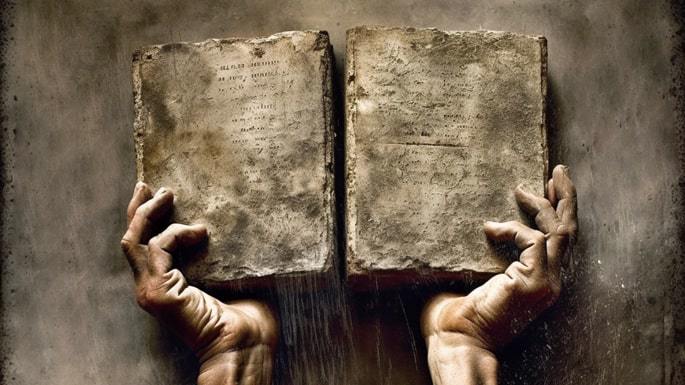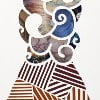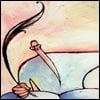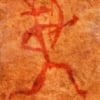The Jews who stood at the foot of Mount Sinai and witnessed heaven coming down to earth were survivors, people who had suffered lives marked by trauma, yanked out of the darkest pits of human existence at the last possible moment.
It was orchestrated to be that way. Abraham was given 400 years notice. He was told, “Your children will be strangers in a land that does not belong to them. Their host-nation will make them suffer. And only then will I rescue them and they will be Mine.”
Why?
Why, if you're going to bring the ultimate divine wisdom into the world only once, why arrange that these shattered souls be the channel for its reception? Why, if you're going to forge a nation to be a light unto all nations, must you forge this nation out of pain and darkness, and not light and peace?
Why arrange that these shattered souls be the channel for its reception?G‑d could have chosen to give the Torah to pure, enlightened souls. He could have said, “I am G‑d, creator of heaven and earth,” instead of mentioning a rescue operation, and gotten straight to revelations of the mysteries of the universe and its integral oneness with Him.
The rest would be things such as “Thou shalt sustain the harmony and diversity of My creation.” No need to mention idols, false testimony, theft, murder, and cravings for things that don’t belong to you. That would all be taken for granted.
Indeed, for such enlightened beings, what would be the point? What would they know that they would not have figured out on their own? That their reality has a Creator? That it is an awesome world? These are things the unbiased human mind will deduce on its own.
Torah didn’t come to teach us anything we could know on our own. It is a mistake to imagine you have captured the essence of Torah by describing it as the wisdom by which the world was made. It is far beyond that. Torah is the wisdom by which the world is healed.
Torah is the wisdom by which the world is healed.To heal a world, you must stand entirely beyond it. You must enter into the very essence of its Creator and sense what He wanted from this world to begin with. In the story of creation, you will find whispers of an unfathomable Author. In its healing, you will discover the Author Himself.
In literature, we call that authenticity. It’s something school textbooks and generative language models cannot provide. In those works, we read information. In great literature, we sense that we are in communion with the author, with a live human being who has invested his very essence in his work. The Torah we learn and teach, every halachah, every nuance, is the authentic literature of G‑d—if only you will learn it that way.
When do you learn it that way? When you learn it out of desperation. When you feel you cannot live without it.
That explains why, at that defining event of Mount Sinai, G‑d did not introduce His Torah with its first words, “In the beginning, G‑d created the heavens and the earth.” Instead, He began with the word “I.”
“I am G‑d, your G‑d, who took you out of the land of Egypt.” Where do you touch the essence of G‑d, the “I?” When you hit rock bottom, and then find in Torah the power to get out of there.
“I,” says the Zohar, is not a name, not a description, not anything that could be grasped by any word, any letter, or even the dimensionless point from which the letter yud of G‑d’s name extends. “I” simply means, “I who am I.”
That “I” was missing from the creation from day one. Now, on the sixth day of Sivan, the Author entered into His own story.
So G‑d chose to disclose Himself to damaged souls. He chose human beings who needed to be instructed not to fear images made of wood and clay, because that made perfect sense to many of them.
He chose people whose intuitive moral compass had degenerated to the point that they needed to be told to honor their mother and father, that it is wrong to lie in a court of law, wrong to steal, to murder—because otherwise they would have no idea. Human beings who had forgotten the very fundamentals of life in a civil society: that you need to know what is yours and what belongs to the other guy, and that you can’t have whatever you want simply because you see it there.
They were good people. But they had been broken. That was the entire objective of Egyptian oppression: Break the spirit of these people so that they will be incapable of dominating, of determining the destiny of their own lives.
They were good people. But they had been broken.These were children who had witnessed their parents crushed beneath the backbreaking labor and stinging whip of their taskmasters. Parents whose sons had been snatched before their eyes and thrown to drown in the river by a frenzied mob. For generations, they had barely managed to retain an ember of hope that one day things would be different, one day, we would be able to breathe as humans once again.
And now, they were asked to enter into an eternal covenant, to be a divine kingdom and a nation of priests.
Sensible people would have asked G‑d for time to contemplate. Not out of hesitation, but simply because such a privilege must take time and due preparation.
But these broken souls responded immediately, “We will do all He says. We will leave the understanding for later.”
In other words, they were not interested in the benefits, the spirituality, the profound wisdom. They were interested in the Author. They wanted Him. The authentic Him.
A container can only contain as much as its space allows. But a shattered vessel can hold the infinite. This was a wisdom that could come only from such people: the wisdom of authenticity that knows no limits.
A heretic said to Rava, “You impulsive nation! You put your mouths before your ears! And you are still holding onto that original impulsiveness, as you act without thinking. You should have listened first. Then, if you were capable, you should have accepted. And if not, you should not have accepted.”
Rava answered him, “About us, who walk wholeheartedly, it is written, ‘The authenticity of the upright leads them to the right place.’1 2
Every human being has wisdom to share. There are those whose lives are paved with tradition, understanding, knowledge, love, and respect. They share light that illuminates the highways of life; they are the signposts that guide us to healthy destinations. Humanity survives, the world keeps going, because it contains such people.
They have experienced firsthand the forces that destroy life. From them we can learn how to use those same forces to heal it, to create a better world.Then there are those who emerge out of hell. Some with one foot still stuck there, some desperately struggling to keep one foot out. The wisdom they have to share is of an entirely different depth.
Out of bitterness and lies they have learned to value authenticity above intellect, good actions above good intents. They have experienced first hand the forces that destroy life. From them we can learn how to use those same forces to heal it, to create a world even better than when it was first created.
—Based on Maamar B’sha’ah Shehikdimu 5732 and Likutei Sichot vol. 3, pp. 823-87.








Join the Discussion